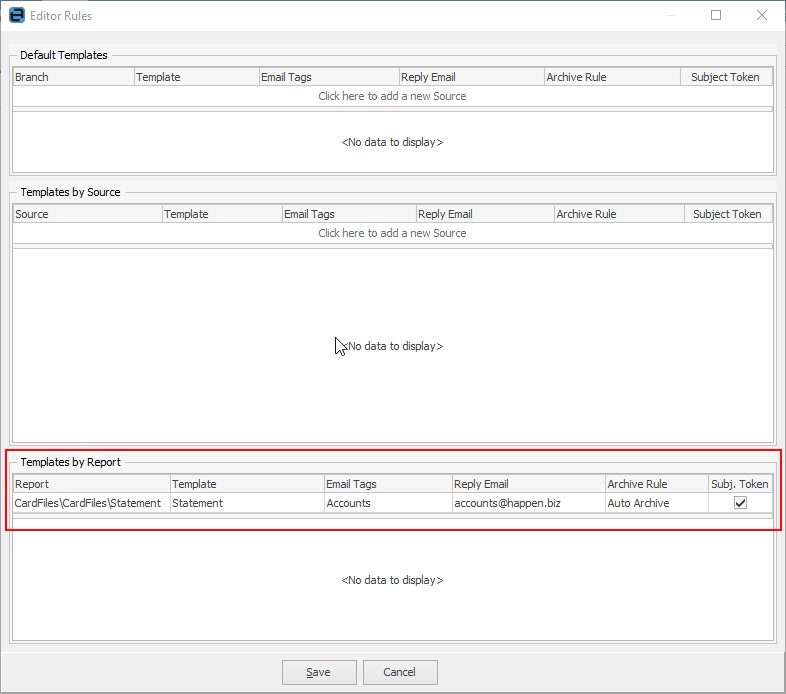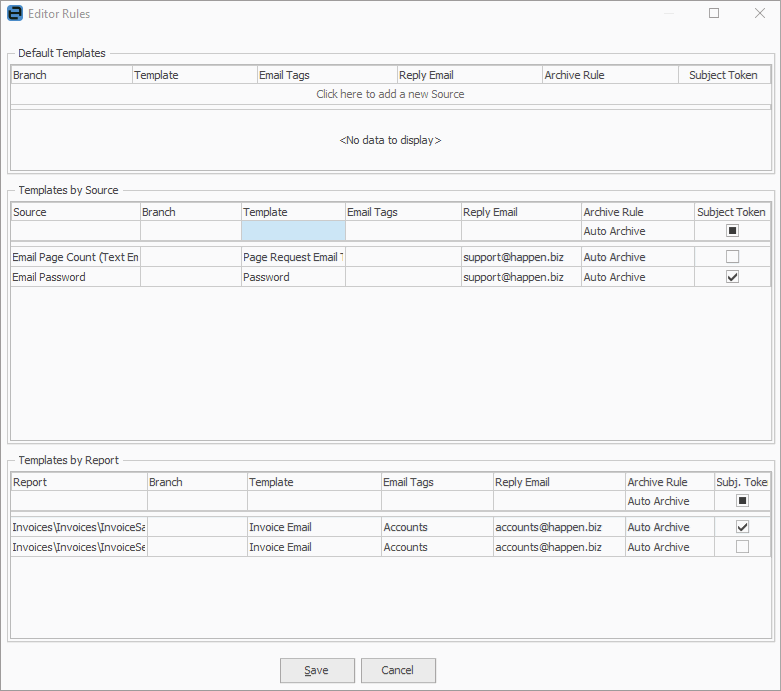

Email Editor Rules define a number of defaults to use based on the type of email, ie. emailing debtors statements. These rules work for all users of Jim2. There are no specific rules for specific users.
A great example of when to use an email editor rule is when emailing the debtors statement report. The requirement in this case is: when emailing the statement report, use the Statement email template, tag the email as Accounts, and send using the accounts@ email address. This can easily be accomplished using the Template by Report email editor rule type.

Editor Rule Type |
Description of when to use |
|---|---|
Default Templates |
Default templates for all emails. |
Templates by Source |
Replying from a service job, sales job, quote, etc. |
Template by Report |
Sending a specific report via email, eg. a statement or invoice. |
Editor Rule Type |
Option |
Examples |
|---|---|---|
Default Templates |
Template |
Company default |
Templates By Source |
Source |
Email New Email Reply Email Forward Email Password Email Page Count Sales Job Service Job Manufacturing Job Purchase Return From Customer Return to Vendor CardFile Contract |
Template |
Service Response |
|
Reply Email |
support@ |
|
Email Tags |
Service |
|
Template By Report |
Report |
Debtors\debtor list\Statement |
Template |
Statements |
|
Reply Email |
accounts@ |
|
Email Tags |
Accounts, Statement |
 |
Template, email address and tags are not required on every source and report. For example, the default email address might be for every time a sales job is responded to. In that case, select source Sales Job and reply email sales@. When specifying a reply email address to use, there is no restriction as to what this email address can be. |
Branch level editor rules
Email Editor Rules support branches (if branches are enabled) allowing for different templates, tags, reply email and archive rules to be set at a branch level. The Branch column will only be available for selection if Branches is enabled via Options. Branch can be left empty if branch selection is not required.
Email subject tokens
Jim2 uses email tokens in an email's subject to allow automatic identification of incoming email responses for associating emails with a Jim2 object, ie. job, quote, etc.
Tokens can be disabled via Email Editor Rules for outgoing emails where a token is not required, for instance, when a reply is not expected.
Email Rules can be deleted by clicking within the field, then right click and select Delete Rule.
